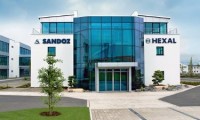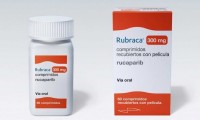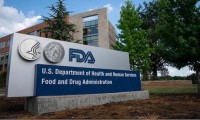-
Genentech CEO Hardy warns of ‘unintended consequences’ from the Inflation Reduction Act
- Source: drugdu
- 106
- July 10, 2023
-
Sandoz launches high-concentration biosimilar of AbbVie’s Humira in the US
- Source: drugdu
- 116
- July 7, 2023
-
FDA approves Skyline Therapeutics’ IND for macular degeneration trial
- Source: drugdu
- 111
- July 6, 2023
-
Bayer needs ‘midsize acquisition’ to reach $10B oncology sales goal, exec says
- Source: drugdu
- 116
- June 15, 2023
-
Bristol Myers’ cell therapy manufacturing site in Massachusetts is good to go, FDA says
- Source: drugdu
- 107
- June 13, 2023
-
’ Seagen CEO talks about his next stop, Pfizer deal and the ADC landscape
- Source: drugdu
- 186
- June 10, 2023
-
Eisai hit with ransomware attack, launches investigation into possible data leaks
- Source: drugdu
- 131
- June 8, 2023
-
After selling Rubraca, Clovis Oncology unveils CRL for potential label expansion
- Source: drugdu
- 204
- June 7, 2023
-
Coherus, Junshi eye FDA finish line after agency finally conducts plant inspection
- Source: drugdu
- 133
- June 5, 2023
-
Lung association calls for more Black Americans to join clinical trials in pharma-backed effort
- Source: drugdu
- 119
- May 23, 2023
your submission has already been received.
OK
Subscribe
Please enter a valid Email address!
Submit
The most relevant industry news & insight will be sent to you every two weeks.













